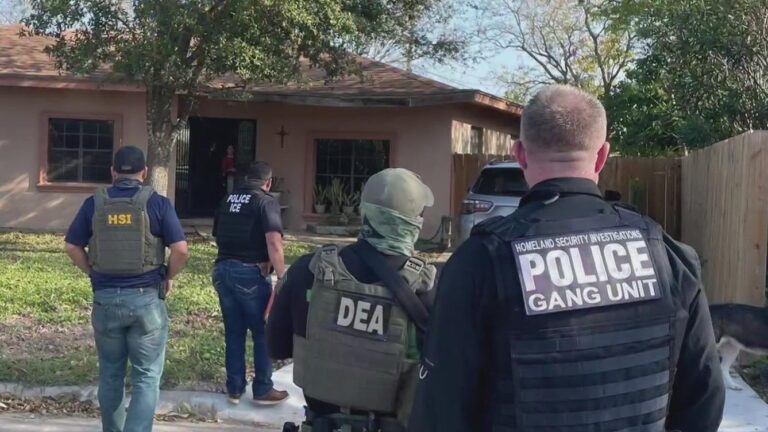North Texas Prepares for Potential Immigration Enforcement in Schools and Churches
Community Mobilization Amid Rising Immigration Enforcement Concerns
Across North Texas, neighborhoods are uniting in response to anticipated immigration enforcement activities that may target local educational and religious institutions. Community leaders, educators, and faith-based organizations are proactively organizing to support immigrant families, prioritizing the creation of secure and welcoming environments for children and congregants alike. School districts are partnering with advocacy groups to disseminate vital legal information and resources, ensuring families understand their rights and have access to counseling during these uncertain times.
Faith centers and community hubs have emerged as critical venues for mobilization efforts. Many have arranged informational sessions and collaborated with immigration law experts to provide complimentary legal consultations. These initiatives reflect a shared dedication to building community resilience and safeguarding vulnerable populations.
- Establishment of emergency helplines
- Hosting of community legal education workshops
- Coordination with local police to uphold policies of non-cooperation with federal immigration enforcement
- Designation of safe spaces within schools and places of worship
| Community Sector | Initiative |
|---|---|
| School Districts | Distribution of ‚ÄúKnow Your Rights‚ÄĚ guides |
| Religious Organizations | Provision of free legal advice days |
| Legal Advocates | 24/7 emergency legal support hotlines |
| Families and Parents | Development of community support networks |
Emotional and Educational Impact on Students and Faith Communities
The prospect of immigration raids has generated significant anxiety among students and members of faith communities throughout North Texas. Parents are deeply concerned about interruptions to their children’s education, while religious leaders worry about the erosion of trust and safety within their congregations. The anticipation of enforcement actions has already led to the cancellation of community events and heightened stress, disrupting the daily lives and emotional well-being of many families.
Advocates stress the importance of transparent communication and robust protective measures. Recommended strategies include:
- On-site legal aid clinics at schools and churches
- Strict confidentiality protocols to protect personal information of students and congregants
- Emergency preparedness plans to ensure safety during potential enforcement visits
- Engagement with local officials and immigration experts to coordinate response efforts
| Group | Main Concern | Support Strategies |
|---|---|---|
| Students | Educational disruption and emotional stress | Access to counseling and remote learning alternatives |
| Parents | Fear of family separation | Legal workshops and informational sessions |
| Faith Communities | Loss of sanctuary and community trust | Implementation of sanctuary policies and outreach programs |
Guidance from Legal Experts on Institutional Preparedness
Immigration and civil rights attorneys are advising schools and religious organizations to enhance their readiness in light of potential immigration enforcement activities. Experts highlight the necessity of establishing clear communication channels, training staff on legal rights, and creating rapid response systems to protect at-risk individuals. One attorney emphasized, ‚ÄúBeing proactive is essential,‚ÄĚ encouraging collaboration with immigrant advocacy groups to ensure informed and effective support.
Key recommendations include:
- Assigning designated legal contacts for staff and congregants during enforcement incidents
- Providing comprehensive training on the scope and limits of Immigration and Customs Enforcement (ICE) authority
- Creating designated safe areas within facilities for temporary refuge and assistance
- Implementing alert mechanisms to promptly notify legal aid providers and family members
| Preparedness Strategy | Details |
|---|---|
| Staff Education | Workshops covering legal rights and raid response procedures |
| Legal Resource Lists | Contact information for attorneys and pro bono services available around the clock |
| Communication Framework | Defined protocols for rapid community and family notification |
| Safe Zones | Designated spaces for immediate support and monitoring during enforcement visits |
Calls from Local Leaders for Enhanced Protections and Support Systems
North Texas community leaders are advocating for stronger legal safeguards to protect immigrant populations amid escalating concerns about immigration enforcement targeting schools and churches. They stress the critical need to preserve safe havens within educational and religious settings to maintain trust and promote inclusivity. Officials warn that increased enforcement could heighten fear and instability, negatively affecting academic achievement and community solidarity.
Proposed initiatives include:
- Restricting immigration enforcement operations in sensitive locations such as schools and places of worship
- Developing rapid response networks to deliver immediate legal assistance and support during enforcement actions
- Expanding community education programs to raise awareness about immigrant rights and available resources
- Strengthening collaboration between local law enforcement and immigrant advocacy organizations to ensure equitable treatment and safety
| Protection Strategy | Expected Outcome |
|---|---|
| Sanctuary Policies | Alleviate fear among immigrant communities |
| Legal Aid Networks | Provide rapid support for immigrant rights defense |
| Community Outreach | Enhance knowledge and preparedness |
| Law Enforcement Partnerships | Foster trust and ensure fair treatment |
Conclusion: Navigating Challenges with Unity and Preparedness
As North Texas braces for the possibility of immigration enforcement actions within schools and churches, community advocates and leaders emphasize the importance of calm, awareness, and coordinated support. This evolving situation highlights the delicate balance local institutions must maintain between legal compliance and protecting vulnerable populations. Ongoing updates will be provided to keep residents informed about the implications for the region’s educational and social communities.







